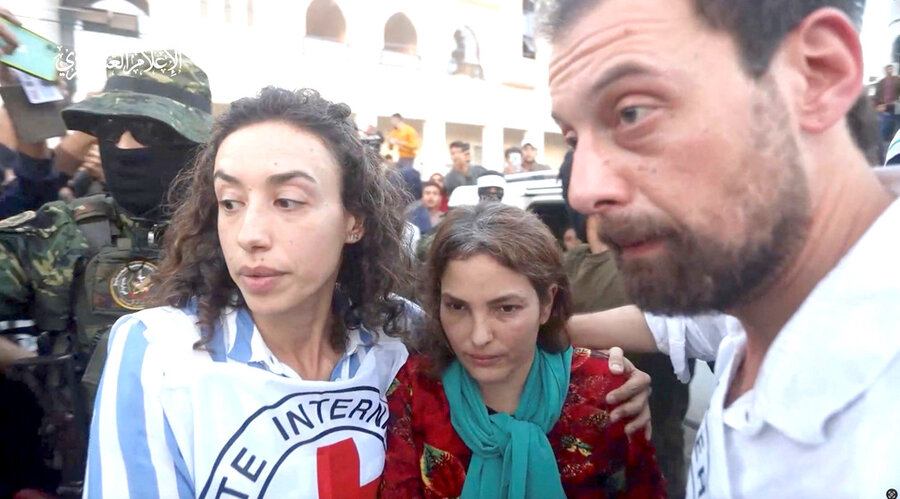An invisible force in the Israel-Hamas war
Loading...
The front lines of the war in Gaza are not always the military front lines. Also present in the intense fighting between Israeli forces and Hamas militants is an invisible force known as the “rules of war,” backed up by international law.
While often ignored by combatants, these rules nonetheless have probably shaped the war in the treatment of civilians, hostages, captured fighters, and detainees. For evidence of these laws in action, just note the visit to Gaza on Tuesday by Mirjana Spoljaric, president of the International Committee of the Red Cross.
As the world’s leading neutral intermediary and custodian of the Geneva Conventions, the ICRC has used confidential dialogue with both sides to help set up a temporary truce and exchanges of hostages and prisoners. Last month, the Red Cross president met Hamas chief Ismail Haniyeh in Qatar to “advance humanitarian issues.” She was in Gaza yesterday to de-escalate tensions and further promote respect for the rules of war aimed at protecting the innocent.
She has not been alone in representing the institutions of humanitarian law. The prosecutor of the International Criminal Court, Karim Khan, was in Israel and the West Bank in recent days, encouraging both Hamas and Israel to avoid war crimes and provide aid to civilians.
He said the atrocities committed by Hamas on Oct. 7 were “some of the most serious international crimes that shock the conscience of humanity.” And he advised Israel that “this is the time to comply with the law. If Israel doesn’t comply now, they shouldn’t complain later.”
Changes in the nature of war have required the ICRC and the ICC to keep adapting the universal principles behind the Geneva Conventions and similar international laws. Yet the ICRC has also lately tried to highlight the positive examples of compliance with such laws. “Collecting such examples and transforming them into lessons learned for militaries and armed actors more generally will become more important,” Peter Maurer, the recent president of the ICRC, told the International Review of the Red Cross last year.
The ICRC’s work is driven by what it calls “fundamental principles,” such as impartiality during a war to protect innocent people and help heal wounded people. “Principles are particularly important, because of the complexity of situations we are navigating,” said Dr. Maurer.
And nothing is more complex than the war in Gaza, in which those who represent humanitarian law are providing an invisible force making sure this war has limits and the innocent have the right of protection.







